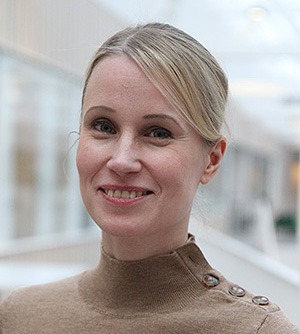Seniors explore app-based well-being

Health in focus
Can practicing mindfulness enhance the life of pensioners? In a health technology research project, individuals over 65 will have the opportunity to test and develop 0meditation apps aimed at preventing stress, anxiety and sleep difficulties.
The ability to be consciously present can be trained. This is precisely what researchers at KTH will study by allowing individuals over 65 to engage in daily mindfulness practices in their homes for three weeks. A mobile app will serve as their guide through the meditation exercises.
Mindfulness, which has demonstrated benefits for mental well-being, involves focusing on the present moment through meditation, utilizing the senses and controlled breathing to manage stress, anxiety, and pain.

The focus on older people is no coincidence. With increasing age, many people experience more health problems, not least mental illness, according to Sanna Kuoppamäki , research leader and associate professor at the Division of Health Informatics and Logistics.
“The effectiveness of mindfulness has already been researched - we want to determine the optimal technical solution for implementing this method among older individuals,” she says.
Particular challenges
Most apps today are not developed with older adults in mind, and the design of an app for older adults is not a given.
“Older people may face particular challenges when using an app. However, it's important to note that they are not necessarily seeking simpler technology, as commonly assumed. Research indicates that age-appropriate apps are beneficial, yet the manner of adaptation requires thorough consideration,” says Kuoppamäki.
The development of the app, rooted in Zen Buddhism's mindfulness meditation method, was spearheaded by a psychology researcher in Gothenburg and introduced to the Western world by American professor Jon Kabat-Zinn in the late 1970s.
During five-minute sessions, participants will be guided through meditations, focusing on breathing or specific emotions such as empathy and self-compassion.
Limited effect
Subjects are asked to provide feedback on their experience and whether anything in the app needs to be improved.
“It gives them the chance to influence similar apps, which is in line with our goal to create the most effective tool possible for older people interested in mindfulness," says Sanna Kuoppamäki.

At the same time, she emphasises that the mindfulness exercises have a limited effect.
“Anxiety and worry are very complex problems. We don't believe that the mobile app can get rid of serious mental health symptoms. But it can serve as a preventive measure to alleviate certain symptoms.”
Digital voice AI assistant
In a later phase, the researchers will install a digital voice AI assistant into the app that can answer questions and take instructions. According to Lucy McCarren , a PhD student in the project, an app where the user can interact offers more benefits.
“It will be a more customised service. Depending on how the person feels a dialogue with the AI service could provide guidance on the most suitable form of meditation.”
One goal of the research is to expand access to mindfulness.
“Awareness of mental health has increased, while access to care and therapist is limited. But we have also gained more tools to use for prevention and hopefully our research can contribute to enabling mindfulness as an alternative.”
Text: Christer Gummeson

